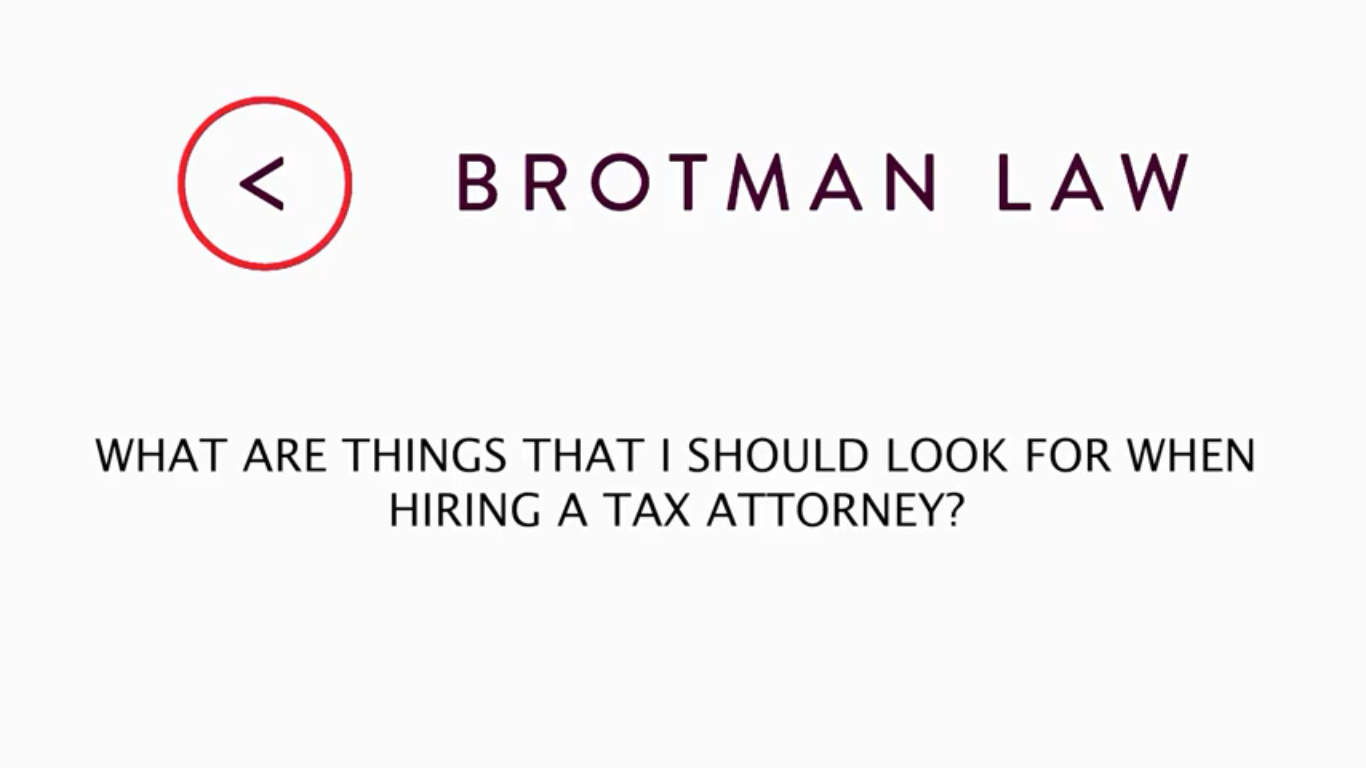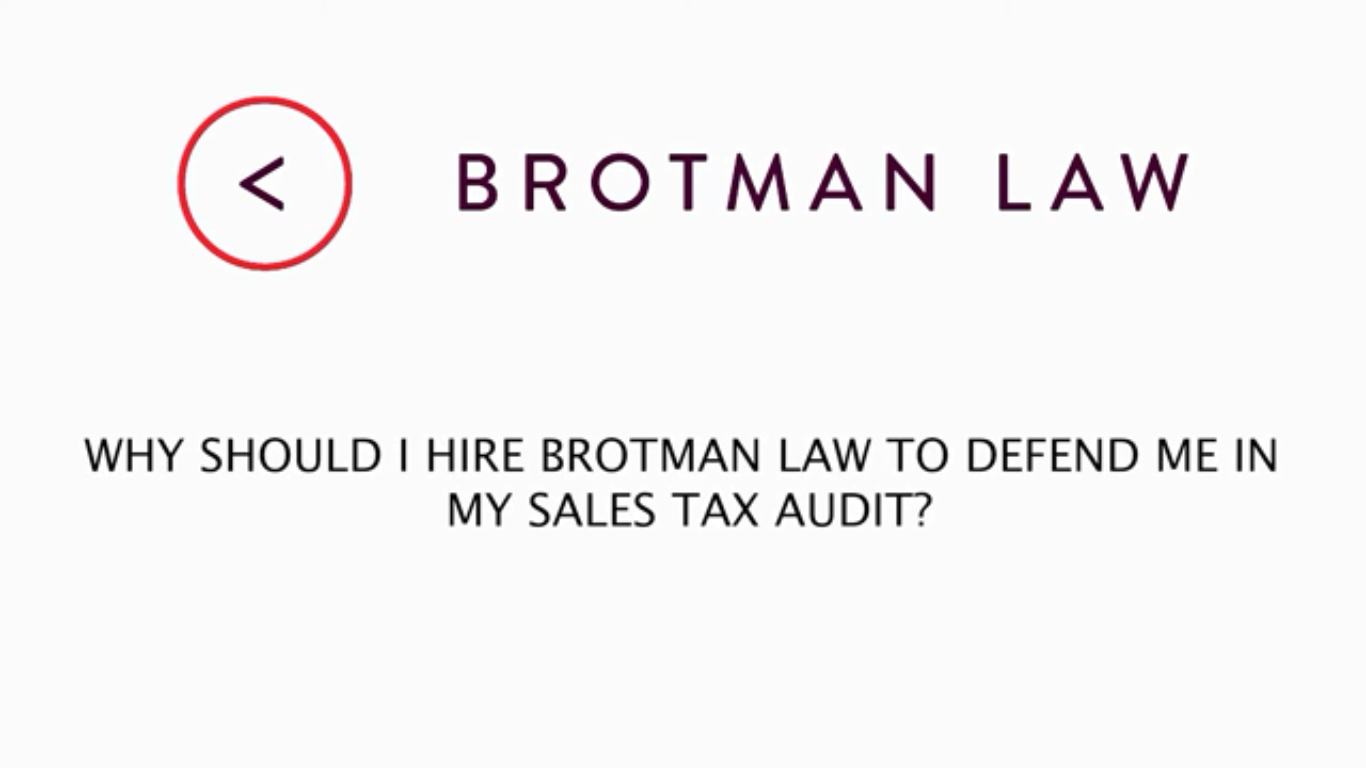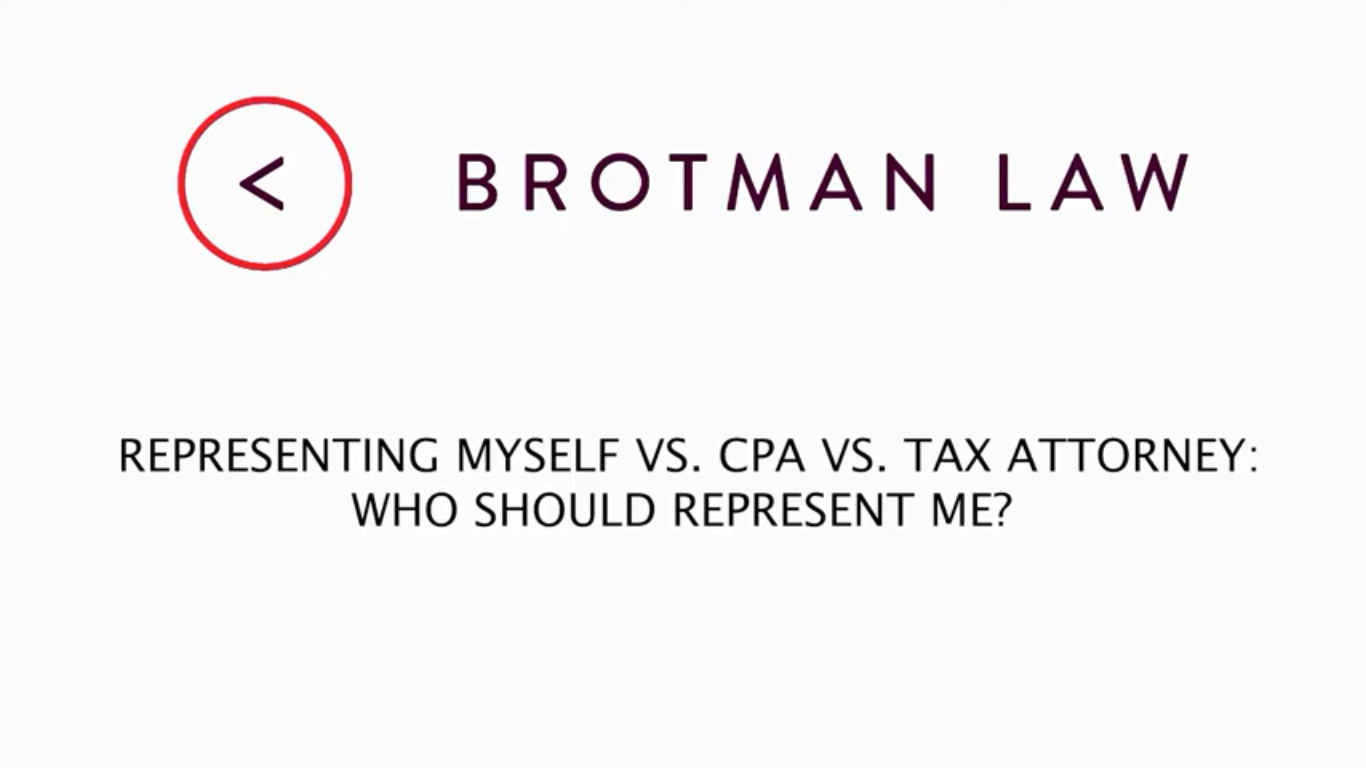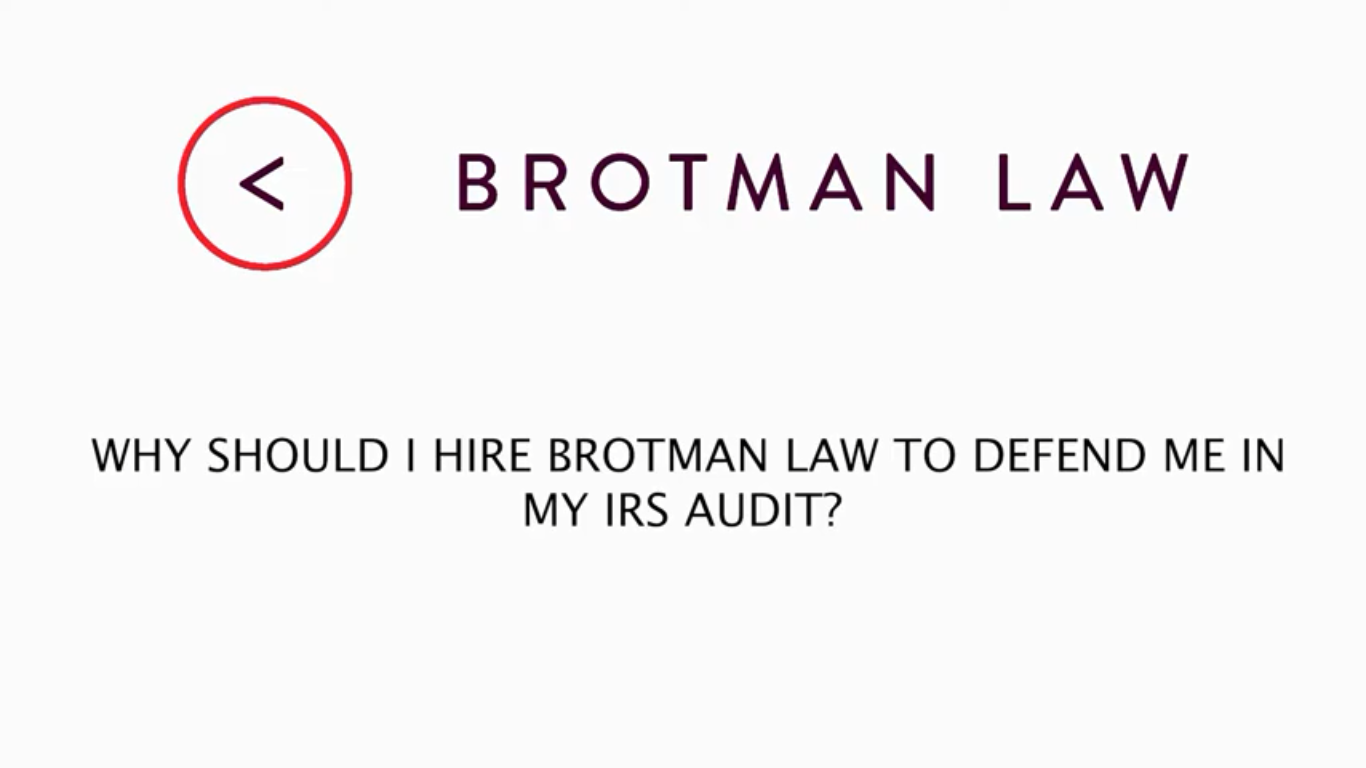I have a favorite saying in the office which I used with a number of my clients. It’s called right person, right seat. So the important thing in any professional services relationship whether it’s a tax attorney or a CPA or any other professional advisor is making sure you have the right person sitting in the right seat to do the right job. The problem with a lot of tax attorneys is a lot of tax attorneys focus on federal issues and they focus on a very limited scope of federal issues. The reason for that is a lot of the traditional tax litigation appears in a judicial setting. So when you’re interviewing a tax attorney and they mentioned they go to court a lot that should be a sign that perhaps this person may or may not be
Other Insights
Why Should I Hire Brotman Law to Defend Me in My Sales Tax Audit?
Are One of the areas of practice that I’m most proud of in our firm we’ve dealt with some very difficult cases.
Representing Myself vs. CPA vs. Tax Attorney: Who Should Represent Me?
The IRS has selected your return for on it because it has limited resources and it feels your return in particular.
Why Should I Hire Brotman Law to Defend Me in My IRS Audit?
IRS audits we’ve got a really good measure of technical skill at the firm can deal with things that are extremely complex.
What’s the Difference Between a Tax Lien and a Tax Levy?

Taxpayers often confuse the terms tax lien and tax levy and do not understand the difference in actions represented by these concepts. While liens and levies can both be filed by the IRS and the California Franchise Tax Board (FTB) and there are many similarities to when they are issued and how they can be removed, liens and levies are terms for very different actions.
Conclusions about CRA and Dodd-Frank
The success or failure of the Dodd-Frank Act will be ultimately judged by history and the impact that it has with combatting some of the problems that have existed with credit rating agencies both before and after the financial crisis of 2008. Already critics have been quick to condemn the act for the perceived over burden that it places on the credit rating agencies or for what others feel is too little regulation that does too little to prevent the evils of the past four decades. Through the research and analysis involved with paper, however, we have come to several conclusions about how the law can be made more effective or where potential shortcomings exist despite its overall intent to promote fairer dealing and more transparency among the agencies.
Consequences for Non-Compliance of Dodd-Frank
Consequences for Non-Compliance of the Law
Conflicts of Interest and Credit Rating Agencies
Effects of the Dodd-Frank Act on Conflicts of Interest
In addition to administering rating and disclosure rules, The Dodd-Frank Act also imposes several requirements on NRSROs to establish internal control systems that prevents conflicts of interest. The bill’s drafters made it a priority to put certain guidelines in place in order to mitigate the temptation toward favoritism within the rating agencies. Without the conflicts, or with the proper steps to mitigate them, the rationale is that more certainty would exist about the objectivity of the ratings.
Dodd-Frank and Credit Rating Agencies
Addressing Credit Rating Agencies Through Enactment of Dodd-Frank
The Dodd-Frank Wall Street Reform and Consumer Protection Act (“Dodd-Frank Act”) was passed and signed into on July 21, 2010. A small part of this act addressed credit rating agencies and their past practices. The act intends to (1) remove references in statutes and regulations to Nationally Recognized Statistical Rating Organizations (“NRSROs”), (2) create a new office of credit ratings, (3) to expand conditions that deal with conflicts of interest that may exist both inside the credit rating agencies and with the issuers and underwriters that they deal with, (4) promote rules for better internal governance and control, (5) define new requirements for the board of directors, and (6) institute harsher consequences for non-compliance with the law. [1]






